Is climate change to blame for a string of shark attacks across America? It’s complicated
Sharks bites on humans are extremely rare. But the climate crisis is still changing life in coastal communities in unexpected ways, Josh Marcus reports

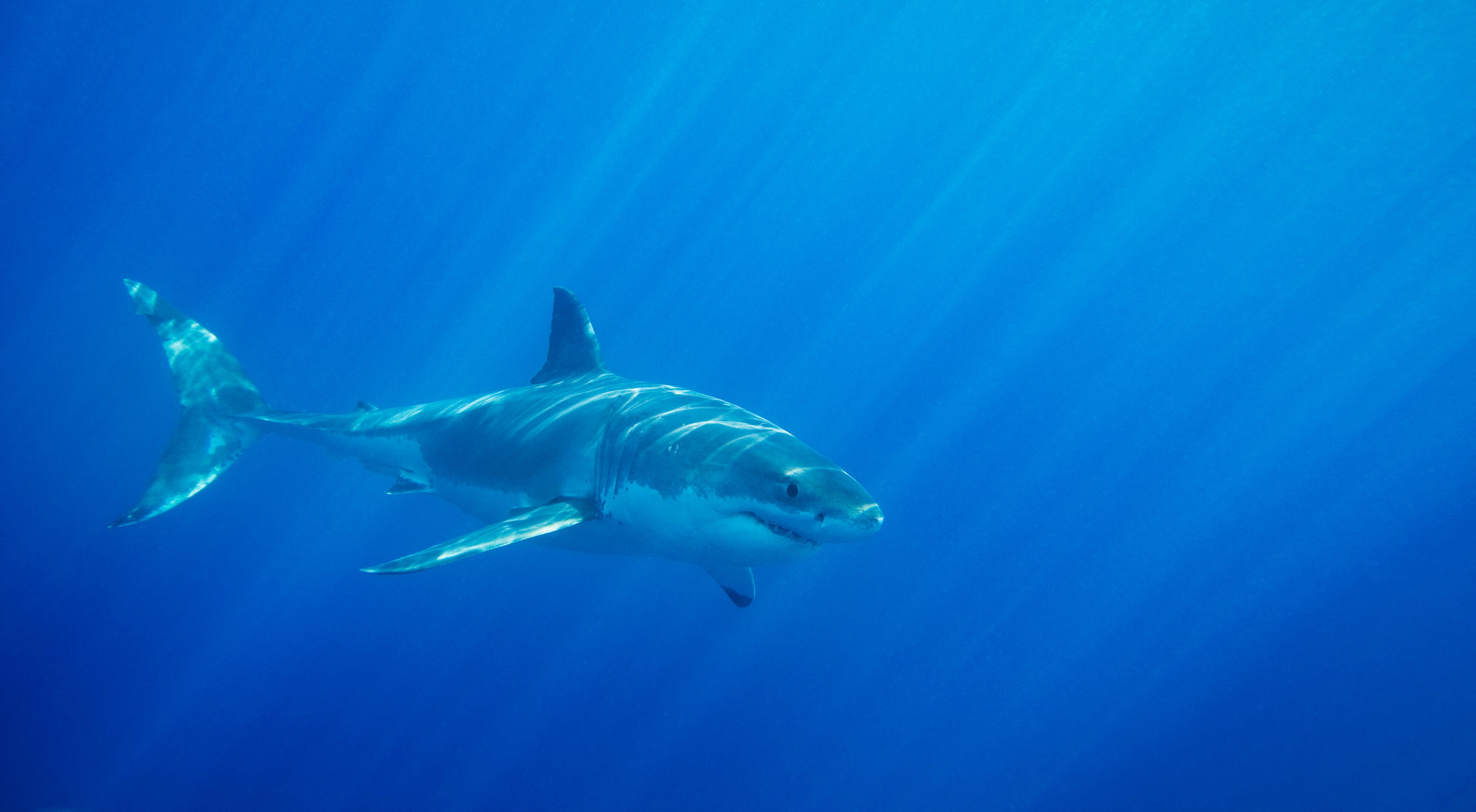
A 10-year-old, Jameson Reeder Jr, on vacation in the Florida Keys in August, bitten so hard by an eight-foot bull shark his leg had to be amputated below the knee. That same weekend, a fisherman on Smith Point Beach, on New York’s Fire Island, filmed wrestling in the waves with sand tiger shark. Two men in California, one in August, one in June, bitten by sharks at the same beach in Pacific Grove, Calfornia.

It can seem, scanning the waves of social media, that shark attacks are everywhere. The real story is far more complicated.
That these encounters happened in such quick succession is both a statistical anomaly and part of a complicated ecological shift taking place at sea. Sharks biting humans, especially fatally, is extremely rare. Human impact on the climate, however, has drastically changed life for sharks in ways that are being felt in coastal communities across the globe.
First things first, let’s talk about shark “attacks.” Many who work with marine animals would prefer another word, like “shark encounters,” since the mighty fish don’t actually view humans as a food source. We’re the ones entering their habitat unexpectedly.
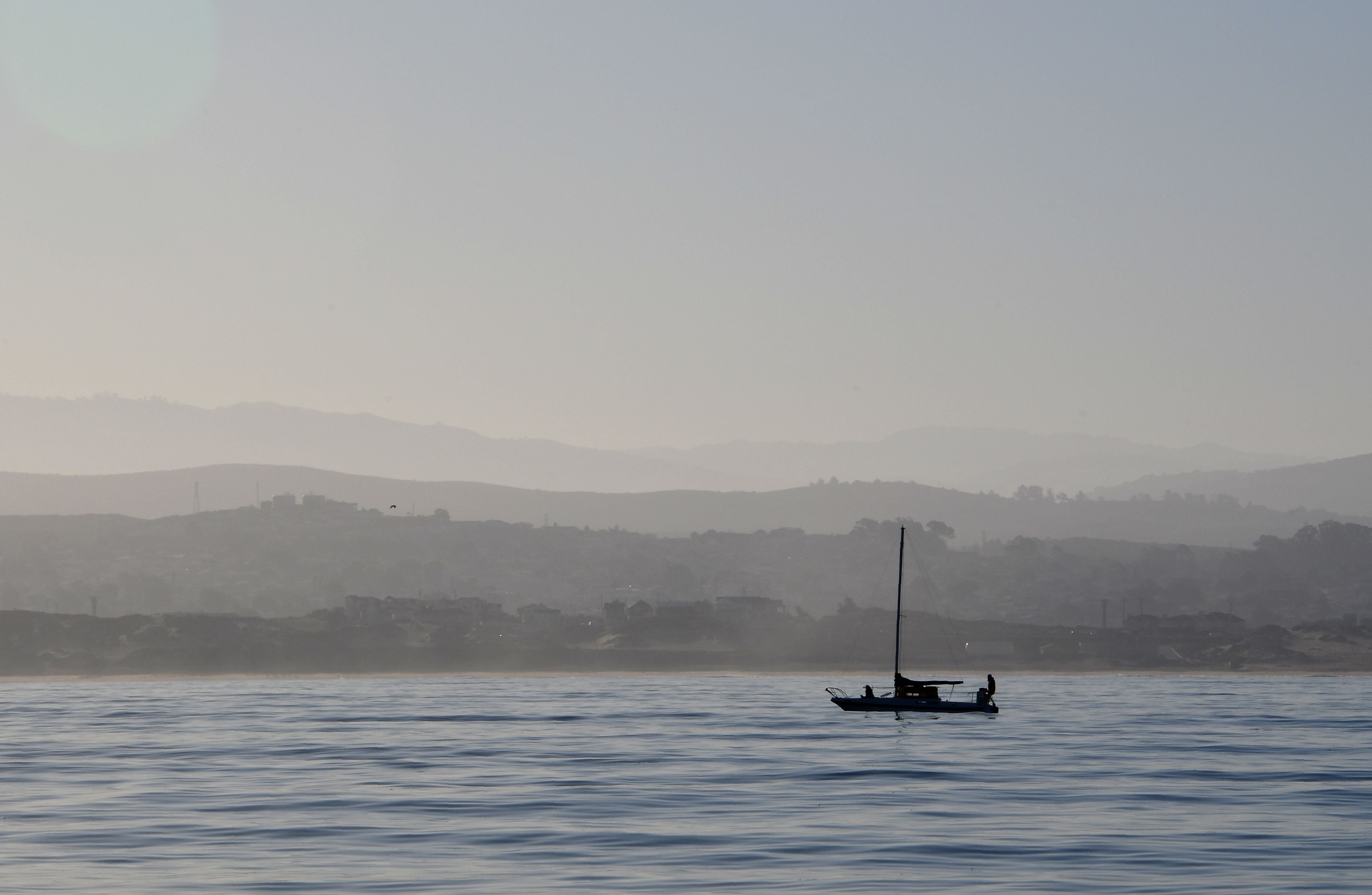
Even with a rapidly changing climate, dangerous shark encounters with humans are very unlikely.
When a massive great white bit a swimmer named Steve Bruemmer in June in Pacific Grove, that was only the 16th recorded shark incident in county history in the last seven-and-half decades. Only two of those encounters have been fatal.
Across the state, with its 39 million people, 3,427-mile coastline, and thriving beach culture, there have only been 203 total shark incidents, 15 of them fatal, since 1950, according to the California Department of Fish and Wildlife (CDFW).
“As far as our data show, there’s no increased risk to people in the water, even in those areas where we’re seeing more and more frequent sharks. There’s lots of evidence that the sharks aren’t terribly interested in people and will even avoid people if approached,” John Ugoretz, environmental programme manager for the CDFW, told The Independent. “It’s clear that the number of injuries and importantly fatalities really doesn’t look like it’s changed much since at least the 1970s, and that’s along with the use of the ocean increasing pretty dramatically over that time.”

Beachside communities in the US have used drones, binoculars, ATVs, paddle boarding lifeguards, and Jet Skis to keep tabs on sharks near swimmers, making it seem as though American beaches may be under siege, though that’s far from the reality.
In fact, thanks to the same internet and social media technologies that make it easier than ever to report and hear about a shark sighting, the risk of a white shark attack has fallen by more than 91 per cent over that same time, according to researchers.

“I’m incredibly struck by how rare shark attacks are. There are lots of sharks out there. That’s where they live and they’re pretty numerous. Any time anybody goes in the water for an any amount of time, you’ve probably been within a few hundred yards of a shark,” said Professor F Joel Fodrie of the University of North Carolina’s Institute of Marine Sciences, noting the state’s famed beaches only average 2 or 3 bites a year. “That’s amazing to me. There’s millions of people spending millions of hours in the water.”
What has changed drastically since the 1950s, however, is the climate. Ocean temperatures were the highest ever on record in 2021, surpassing records set only the year before.
Warming oceans off the coast of California and New York are sending sharks into new territories.
"Climate change is definitely playing a role [...] especially in the sightings we’re seeing this year and last year," Chris Paparo, of the South Fork National History Museum’s shark research team, told CBS News of recent shark sightings. "As sea temperatures are rising due to climate change, a lot of fish populations are shifting north," he added.
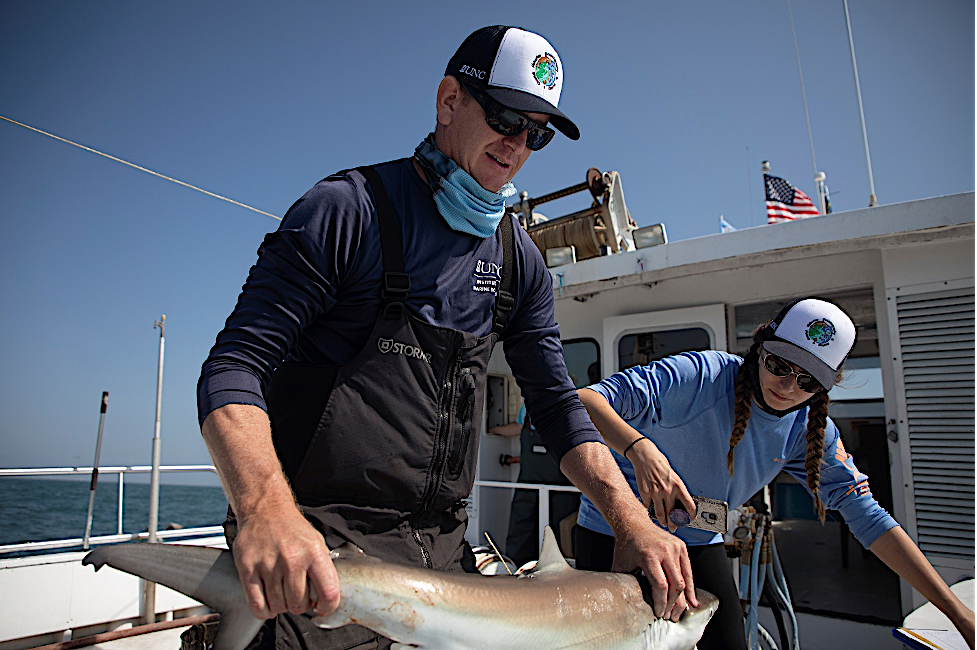
It’s been the same way in Pacific Grove’s Monterey Bay, where researchers have clocked “unprecedented” numbers of juvenile white shark sightings. The young sharks have expanded their range northward by about 370 mi (600km) since 2014, enjoying newly warmed waters close to shore after an especially pointed aquatic heat wave hit the California coast through 2016.
“Nature has many ways to tell us the status quo is being disrupted, but it’s up to us to listen,” Monterey Bay Aquarium chief scientist Dr Kyle Van Houtan told The Independent. “These sharks – by venturing into territory where they have not historically been found - are telling us how the ocean is being affected by climate change.”
The arriving sharks then began feeding on sea otters, a species once nearly hunted into extinction by humans but then protected by law, significantly lowering populations once again.
Climate change may also be pushing more people into the water with sharks.

“The primary driver of change in the number of attacks we are seeing is going to be driven by how many people are in the water. Maybe the climate effects that,” Dr Fodrie added. “It may be that climate that pushes people towards the water more often because they’re hot and weather patterns have changed.”
All species are valuable, and occupy niches that sustain the larger web of life around them, but sharks are what’s called a “keystone species,” according to Dr Neil Hammerschlag, director of the Shark Research & Conservation Program at the University of Miami. That means they have a disproportionate impact on the ecosystem.
They’re opportunistic hunters, going after food species that appear in high numbers, keeping various populations in check. In tropical systems, for example, sharks feed on turtles, allowing sea grass to grow in large enough abundance to provide habitat for fish species and sequester carbon.
“If you have these apex predators that are changing when and where they’re moving to, that’s going to have consequences on the rest of the species of where they’re going to and where they left,” Dr Hammerschlag told The Independent. “It’s going to change the predator-prey interactions int the former and in the new part of their range.”
It is also opening sharks up to harm.
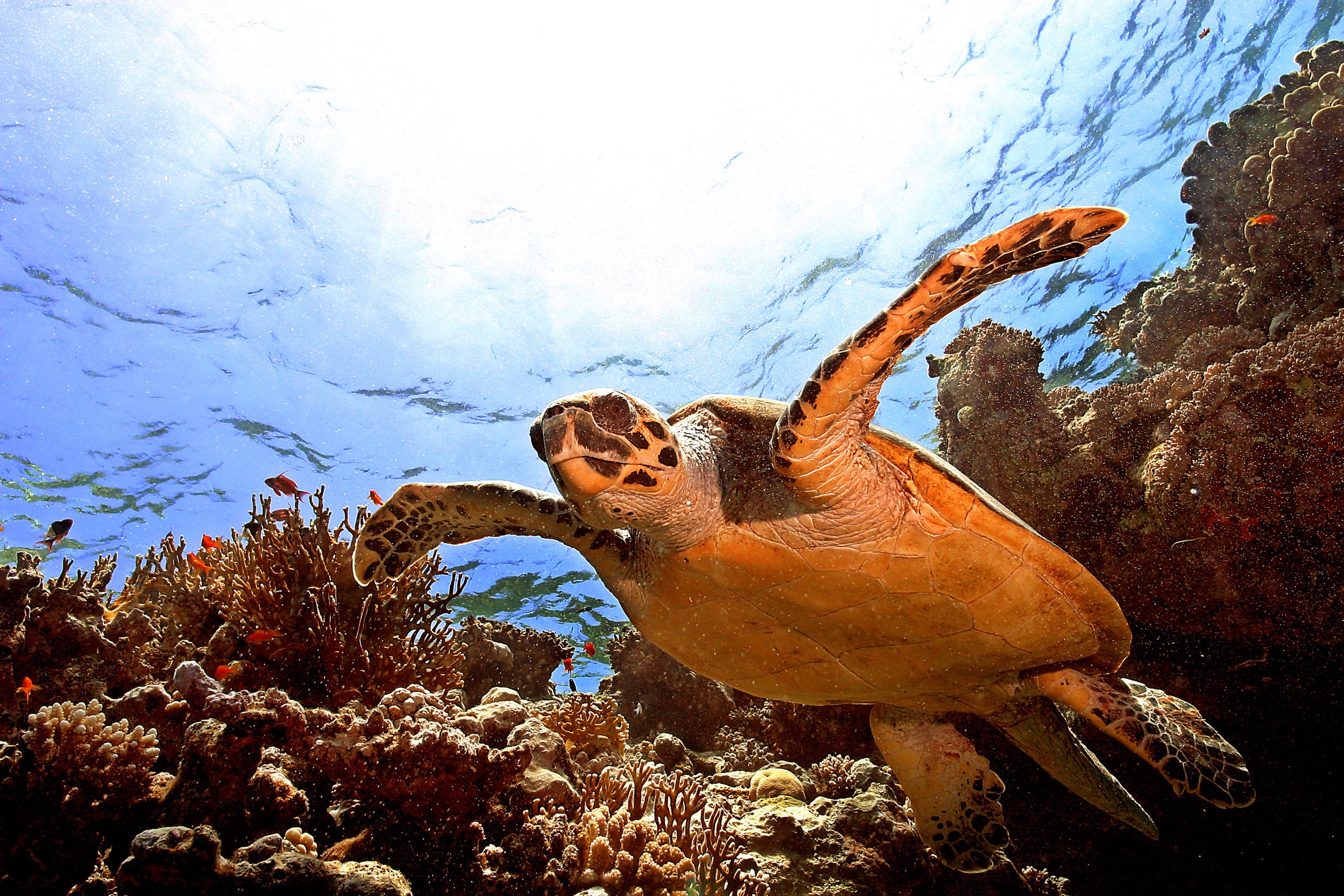
Dr Hammerschlag and his team have found that rising ocean temperatures have caused tiger sharks to change their migration patterns in ways that happen to put them outside of marine protected areas.
He also said that warming waters off the coast of New England are enticing the species to swim further north. He noted that one of the attacks off Long Island this month came from a tiger shark.
“Having a shark attack off Long Island is very, very rare,” he said. “That’s concerning. Shark bites are so rare it’s really hard to say anything about drivers. It’s hard to draw conclusions based on why there may be a shark bite or not, but what we know is that historically tiger sharks were rare in these areas and bites were rare in these areas.”
Beyond just affecting the range of sharks, the climate crisis may be causing changes to shark biology and carbon sequestration.
Researchers believe that warming ocean temperatures may explain an outbreak of skin disease among white tip reef sharks in Malaysia, while scientists in Australia and New Guinea have found that ocean heating speeds up gestation in epaulette sharks, causing them to hatch from eggs too early and be born weak and exhausted.
“Sharks as a top level predator play a very important role in the ecosystem,” said CDFW’s Mr Ugoretz.
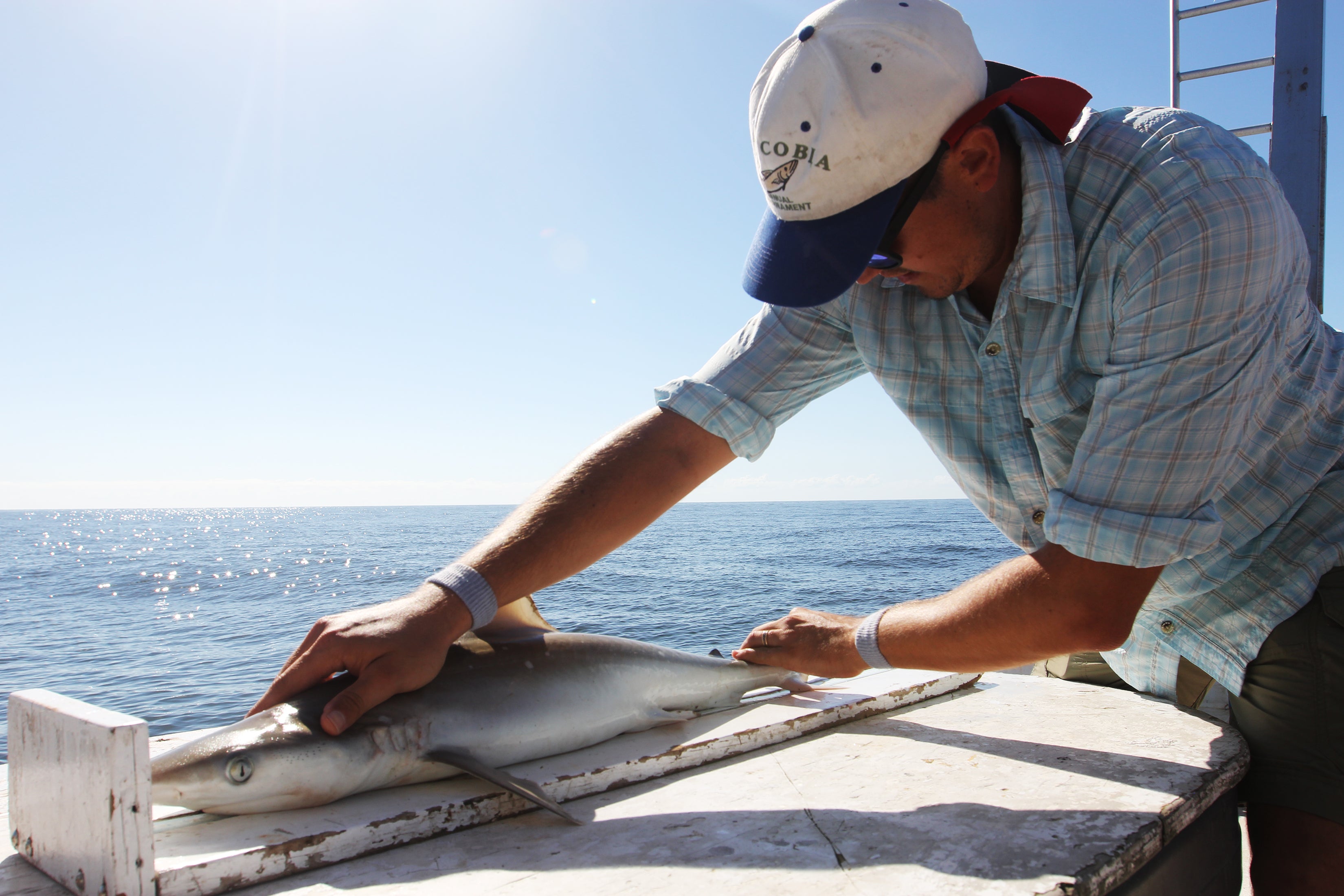
Any change at the top affects all the other species connected to sharks. As a result, they’re protected by federal and state law in many places in the US.
Researchers in Western Australia have simulated that a loss of tiger sharks due to rising sea temperatures would increase numbers of their prey, the manatee-like dugongs, who would in term wipe out stores of seagrass, a key habitat feature for a variety of species and an important carbon sink.
There’s also the considerable risk sharks face from humans themselves. People kill an estimated 100 million sharks per year, often incidentally as part of fishing for other species, or in expensive and often ineffective shark culls.
Overfishing has killed an estimated 71 per cent of the overall shark population since 1970.
This has a climate effect, too. When sharks die naturally, they sink to the ocean floor, sequestering the carbon in their bodies along with them.
And what happens in the ocean has a big impact on human economics too.

According to UNC’s Dr Fodrie, changing oceans have likely caused more bonnethead sharks to occupy the state’s coasts.
“Bonnethead are essentially blue crab consumption factories. They just eat a ton of blue crab,” he said. “Blue crab happens to be North Carolina’s most valuable commercial fishery.”
All these rapid changes in marine life are impacting a group of creatures that has been on Earth for hundreds of millions of years, and has generally been slower to evolve.
“They have weathered major changes in climate – periods of glaciation and warmth – but the rapid and acute change that they’re currently experiencing is something new,” according to the Save our Seas Foundation. “Sharks are slow to evolve – they generally grow slowly, mature late in life and have long generation times – so it is difficult for them to adapt to the new conditions brought about by the rapid climate change we’re inducing now.”
The lives and locations of sharks may be changing in coastal waters, but that hasn’t changed things much for those some of those humans with a deep connection to the water.
Erica Fox founded the Kelp Kralwers swim club, of which Mr Bruemmer is a member, in 2005. She is a diehard ocean swimmer.
Ms Fox says the recent shark bite in Pacific Grove hasn’t stopped her or her fellow Kelp Krawlers from being back in the water, though some have bought electronic shark-repelling wristbands. She hasn’t ever encountered a shark herself, but has an equanimous approach towards sharing the water with them anyway.
“As soon as you dive in the water, you’re immediately in a foreign land. We are the ocean ecology’s humbled guests,” she told The Independent.
A group of about a dozen Kelp Krawlers were back in the water days after Mr Bruemmer was bitten.
“I feel more vulnerable riding my bike than being in the water,” Ms Fox said.
Surfer Shawn Donnelly, one of those bitten in New York in June, told reporters he also plans to get back in the water, though he might think twice about paddling out in the early morning by himself.
Lifeguard Zach Gallo, bitten at New York’s Smith Point Beach in early July, was back in the water 11 days later.
"Just so happy to be back. My fellow guards and I were yelling at the water, ‘Who’s ready round two?’" Mr Gallo told CBS2.
University of Miami’s Dr Hammerschlag said he considers it a privilege to share the water with sharks.
“I love shark diving. It’s a surreal experience,” he said. “I feel very connected to nature. I feel very spiritual being in the water with sharks. It’s just incredible beauty. It’s just kind of awe inspiring to be in the water with a huge animal and to share space with a huge animal. Sharks are not puppy dogs. They’re predators. You have this respect for them. At the same time you see how tolerant they are of people. If they wanted to hurt you they could, but they don’t.”
In the planetary picture, then, while shark fins may be breaching the surface in new places, and shocking videos of encounters may be spreading this image even further, it is human beings who need to change their ways to make the oceans a safer place for everyone.
Join our commenting forum
Join thought-provoking conversations, follow other Independent readers and see their replies
Comments
Bookmark popover
Removed from bookmarks